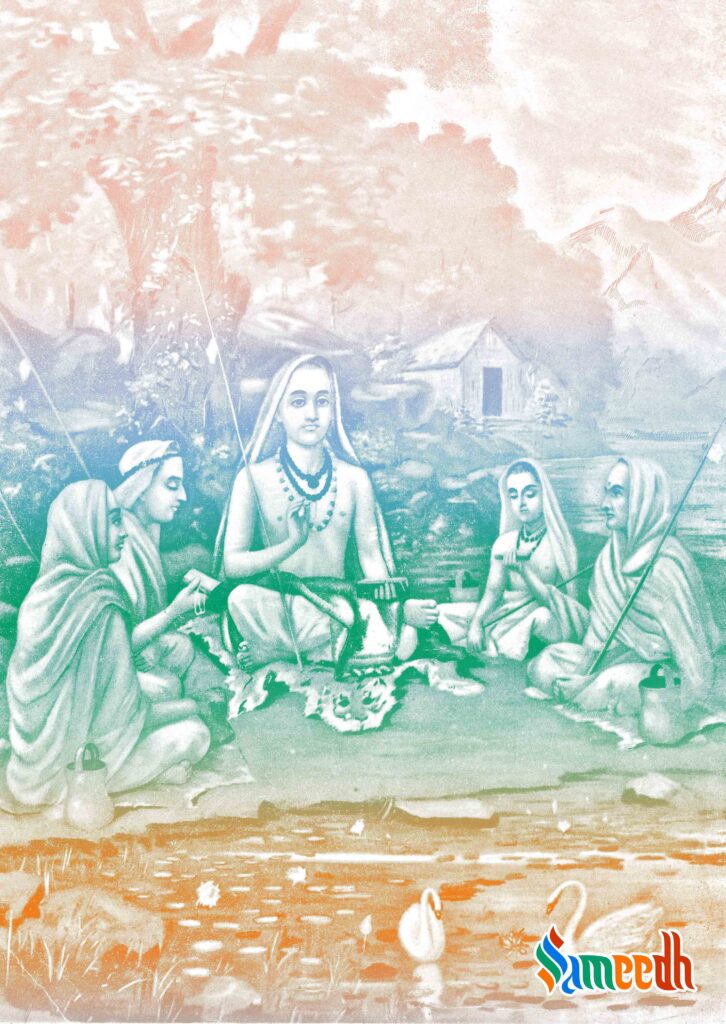This blog post throws light on the concept and philosophy of Advaita. It talks about the founding figures of philosophy and their thought and understanding of the universe behind it.

DEFINITION
The Meaning of Advaita
The concept of Advaita comes from the umbrella philosophy of Vedanta. This phase started with the end of the age of Vedas. It began with the age of Upanishads. It is based on the philosophy of non-Dualism or essentially, Monism.
The Upanishads were basically the texts of this philosophy. It was a very revivalist philosophy. The concept of Advaita is based on the infinite existence of the Atman or the self. It defines the Brahman as the basic unit or the core of the Atman or One’s Self.
ORIGIN
The Birth of the Advaita
The Advaita came into existence through the work and mind of Adi Shankracharya. He also developed elaborate commentaries on different Upanishads as well. According to his philosophy of Advaita, the Self or the Atman and the Universe of the Brahman are the same.
This is where the name Advaita or Non-Duality came into being.
EXPLANATION OF THE PHILOSOPHY
The Concept of Advaita
To understand the philosophy of Advaita, one needs to understand the meaning of Brahman and Atman. Brahman in layman terms is basically Universe and Atman in layman terms is known as One’s Self.
According to Advaita, the Brahman is basically the most fundamental unit of every individual and the universe that exists. It is understood that Brahman is basically the purest form of existence and conscience. The term know for the most absolute form of Brahman is called Nirguna Brahman. According to Advaita, the Self and the Brahman is the same and exists together. And anyone who finds out the difference between the Atman and the Brahman reaches the state of Liberation.
According to Advaita, only the Brahman is a reality, every other component is a mere illusion or Maya, as they say.
ANCIENT USAGE
Influence in the Ancient Age
The evolution and birth of Advaita can be dated back to 7th CE. It is one of the oldest and the most fundamental schools of philosophy. It was developed further into fruition by Adi Shankaracharya’s understanding and analysis of the Brahma-sutras.
According to Shankaracharya, the concept of plurality is an illusion and only Brahman exists in reality. He wrote commentaries or Bhasyas to elaborate on the understanding of the Upanishads, Brahman and Advaita.
NATIONAL AND INTERNATIONAL USAGE
Influence on India and Beyond
The influence of Advaita Vedanta and Adi Shankaracharya is still alive and thriving. Many fields of study and professions are invested in understanding the concepts of Advaita and the teaching of Adi Shankaracharya on Advaita. The knowledge of this philosophy is being applied to the world of Physics and Meta Physics.
The wisdom of Advaita philosophy is being used to investigate the mysteries of the Universe, Black Holes, stars etc. The philosophy of Advaita is crossing the geographical as well as philosophical boundaries.
ADAPTATIONS OF CONCEPTS IN OTHER PHILOSOPHIES
Influence on other philosophies
From Physics to Astronomy to Astrology, the philosophy of Advaita influences various fields of research and wisdom. It has also influenced many followers of Adi Shankaracharya like Vachaspati Mishra.
The Eternal Influence of Advaita
The modern world of Indian culture still celebrates the influence and wisdom of Advaita. Adi Shankaracharya who founded the philosophy of Advaita is considered one of the most prominent and the most respected philosophers of India and even the world. In fact, to respect the wisdom of the philosophy of Advaita and the philosopher Adi Shankaracharya, a 12-foot statue of him at Kedarnath was unveiled.
Our work and curiosity for the purest form of wisdom has given birth to Sameedh. We delve into all the subjects related to our Hindu culture.